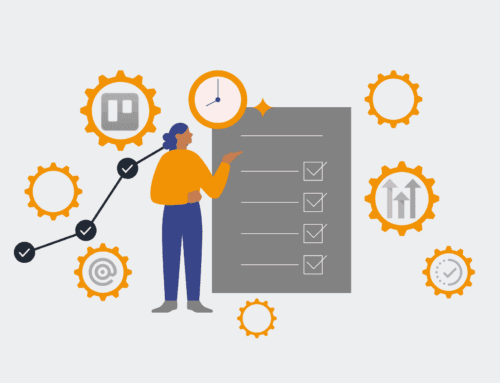Beyond Help Desks: Advanced Support Tiers for Complex HR Tech Challenges
The modern HR landscape is a far cry from the days of simple spreadsheets and standalone applicant tracking systems. Today, HR departments leverage sophisticated technology stacks—CRMs, payroll systems, benefits platforms, learning management systems, and a myriad of specialized tools—all interconnected to drive efficiency and optimize the employee experience. This technological advancement, while powerful, introduces a new layer of complexity, making the traditional, reactive “help desk” model woefully inadequate for serious operational issues. When your mission-critical HR tech falters, a basic ticket queue simply won’t cut it. Business leaders need to look beyond foundational support to advanced tiers designed for intricate problems.
The Evolving Landscape of HR Tech Complexity
HR technology is no longer just about administrative tasks; it’s the backbone of talent acquisition, employee engagement, compliance, and strategic workforce planning. Systems like Keap or HighLevel CRMs, when integrated with various HR platforms via tools like Make.com, create a robust, yet inherently complex, ecosystem. A single data discrepancy, an integration failure, or a misconfigured automation can cascade into significant operational disruptions. Imagine a payroll error affecting hundreds of employees, a critical applicant losing their application due to a system glitch, or compliance data becoming misaligned. These aren’t minor inconveniences; they are costly, reputation-damaging failures that demand immediate, expert intervention.
Our experience at 4Spot Consulting shows that companies generating $5M+ ARR cannot afford to have their HR tech infrastructure operate without robust, proactive support. The stakes are too high. Data integrity, system uptime, and seamless workflows are not luxuries; they are fundamental requirements for scalable growth and operational excellence. Relying on generic support means waiting for a problem to escalate before it reaches someone with the actual expertise to fix it, costing valuable time and revenue.
The Pitfalls of “One-Size-Fits-All” Support
Most HR tech vendors offer a standard Level 1 (L1) help desk support. This tier is excellent for password resets, common FAQs, or basic navigation questions. However, the moment an issue crosses into system architecture, complex data flows, custom integrations, or critical performance bottlenecks, L1 support hits its limits. They lack the deep-dive expertise, the holistic understanding of your unique tech stack, and often, the authorization to make systemic changes.
The consequence of this gap is often a frustrating cycle: tickets bounce between departments, resolution times drag, and your high-value employees are diverted from strategic work to troubleshoot basic but critical system failures. This reactive approach erodes productivity, creates stress, and leaves your HR operations vulnerable. Furthermore, an L1 help desk typically isn’t equipped to identify root causes or implement preventive measures, leaving your business susceptible to recurring issues.
Defining Advanced Support Tiers for HR Tech
Effective HR tech support needs to be tiered, mirroring the complexity of the issues it addresses:
Level 2 (L2): Specialized System Expertise
L2 support goes beyond basic troubleshooting. These experts possess in-depth knowledge of specific HR tech platforms, understanding their intricacies, configuration options, and common integration points. They can diagnose more complex errors, perform data recovery, or rectify configuration issues. They often act as the bridge between your operational teams and highly technical problems, translating complex issues into actionable solutions.
Level 3 (L3): Strategic & Architectural Consultation
This is where true strategic partnership resides. L3 support comprises engineers, architects, and senior consultants who understand not just individual systems, but how they integrate, interact, and impact your broader business objectives. They tackle critical system failures, architectural design flaws, performance optimization, and custom development challenges. L3 support is often proactive, providing insights into system health, security vulnerabilities, and opportunities for process improvement. They are the ones who can look at a problem and ask, “How can we prevent this from happening again?” or “How can we optimize this for future scale?”
Strategic Partnership: The 4Spot Consulting Approach to Advanced Support
At 4Spot Consulting, our `OpsCare` framework is built precisely to address these advanced support needs, extending far beyond the reactive help desk. We don’t just fix problems; we prevent them and optimize systems for peak performance and scalability. Our approach begins with a deep understanding of your operational ecosystem through `OpsMap`—a strategic audit that uncovers inefficiencies and automation opportunities. This foundational insight allows us to `OpsBuild` robust, resilient systems using tools like Make.com to connect dozens of SaaS applications, minimizing potential failure points.
Once built, `OpsCare` ensures continuous optimization and proactive support. We act as your embedded L2/L3 team, with expertise in HR and recruiting automation, CRM & data backup (specifically for Keap and HighLevel), and AI-powered operations. Our strategic-first approach means every solution is tied directly to ROI and business outcomes. For instance, we helped an HR tech client save over 150 hours per month by automating their resume intake and parsing process using Make.com and AI enrichment, then syncing to Keap CRM. This wasn’t just fixing a bug; it was a systemic overhaul that significantly boosted efficiency and prevented future bottlenecks. As they put it, “We went from drowning in manual work to having a system that just works.”
Choosing an advanced support partner like 4Spot Consulting means investing in peace of mind. It means your HR tech stack, critical to your growth and talent strategy, is not merely maintained but actively optimized and protected. It means resolving complex issues swiftly, reducing operational costs, and freeing your high-value employees to focus on what they do best, knowing that their underlying systems are robust and reliable.
If your HR tech challenges extend beyond simple fixes, it’s time to move beyond the traditional help desk. It’s time to partner with experts who can offer strategic, multi-tiered support that aligns with the complexity and criticality of your business operations.
If you would like to read more, we recommend this article: The Unsung Heroes of HR & Recruiting CRM Data Protection: SLAs, Uptime & Support







